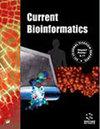Identifying Key Clinical Indicators Associated with the Risk of Death in Hospitalized COVID-19 Patients
IF 2.9
3区 生物学
Q3 BIOCHEMICAL RESEARCH METHODS
引用次数: 0
Abstract
Background: Accurately predicting survival in hospitalized COVID-19 patients is crucial but challenging due to multiple risk factors. This study addresses the limitations of existing research by proposing a comprehensive machine-learning framework to identify key mortality risk factors and develop a robust predictive model. Objective: This study proposes an analytical framework that leverages various machine learning techniques to predict the survival of hospitalized COVID-19 patients accurately. The framework comprehensively evaluates multiple clinical indicators and their associations with mortality risk. Method: Patient data, including gender, age, health condition, and smoking habits, was divided into discharged (n=507) and deceased (n=300) categories. Each patient was characterized by 92 clinical features. The framework incorporated seven feature ranking algorithms (LASSO, LightGBM, MCFS, mRMR, RF, CATBoost, and XGBoost), the IFS method, and four classification algorithms (DT, KNN, RF, and SVM). Results: Age, diabetes, dyspnea, chronic kidney failure, and high blood pressure were identified as the most important risk factors. The best model achieved an F1-score of 0.857 using KNN with 34 selected features. Conclusion: Our findings provide a comprehensive analysis of COVID-19 mortality risk factors and develops a robust predictive model. The findings highlight the increased risk in patients with comorbidities, consistent with existing literature. The proposed framework can aid in developing personalized treatment plans and allocating healthcare resources effectively.确定与 COVID-19 住院患者死亡风险相关的关键临床指标
背景:准确预测 COVID-19 住院患者的存活率至关重要,但由于存在多种风险因素,预测难度很大。本研究针对现有研究的局限性,提出了一个全面的机器学习框架来识别关键的死亡风险因素,并开发出一个稳健的预测模型。目标:本研究提出了一个分析框架,利用各种机器学习技术来准确预测 COVID-19 住院患者的存活率。该框架全面评估了多个临床指标及其与死亡风险的关联。研究方法将患者数据(包括性别、年龄、健康状况和吸烟习惯)分为出院(507 人)和死亡(300 人)两类。每位患者都有 92 个临床特征。该框架包含七种特征排序算法(LASSO、LightGBM、MCFS、mRMR、RF、CATBoost 和 XGBoost)、IFS 方法和四种分类算法(DT、KNN、RF 和 SVM)。结果年龄、糖尿病、呼吸困难、慢性肾衰竭和高血压被认为是最重要的风险因素。使用 KNN 和 34 个选定特征的最佳模型达到了 0.857 的 F1 分数。结论我们的研究结果对 COVID-19 的死亡风险因素进行了全面分析,并建立了一个稳健的预测模型。研究结果突显了合并症患者的风险增加,这与现有文献一致。所提出的框架有助于制定个性化治疗方案和有效分配医疗资源。
本文章由计算机程序翻译,如有差异,请以英文原文为准。
求助全文
约1分钟内获得全文
求助全文
来源期刊

Current Bioinformatics
生物-生化研究方法
CiteScore
6.60
自引率
2.50%
发文量
77
审稿时长
>12 weeks
期刊介绍:
Current Bioinformatics aims to publish all the latest and outstanding developments in bioinformatics. Each issue contains a series of timely, in-depth/mini-reviews, research papers and guest edited thematic issues written by leaders in the field, covering a wide range of the integration of biology with computer and information science.
The journal focuses on advances in computational molecular/structural biology, encompassing areas such as computing in biomedicine and genomics, computational proteomics and systems biology, and metabolic pathway engineering. Developments in these fields have direct implications on key issues related to health care, medicine, genetic disorders, development of agricultural products, renewable energy, environmental protection, etc.
 求助内容:
求助内容: 应助结果提醒方式:
应助结果提醒方式:


